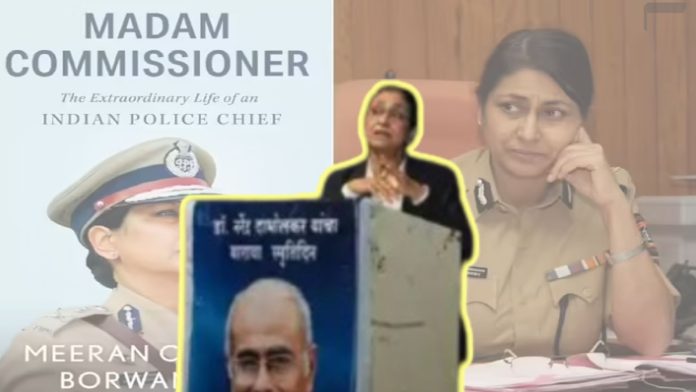Pune: Former Maharashtra Director General of Police (DGP) Meeran Borwankar has underlined the need for the police to remain firmly rooted in the Constitution while performing their duties. Speaking at a public event in Pune, she highlighted the dangers of political interference and urged officers to uphold constitutional values over partisan interests.
Borwankar, who served in several key positions during her career, warned against the increasing politicisation of law enforcement. She said police officers must remember that their loyalty lies with the law and the Constitution, not with governments or political leaders. She added that institutions lose credibility when they are seen as serving ruling parties instead of the public.
Drawing attention to the frequent misuse of investigative agencies, Borwankar stressed that bending to political pressure weakens democracy. She said that when police officers follow the Constitution, they protect the rights of citizens and strengthen faith in the justice system. She pointed out that impartial policing is essential for social harmony, particularly in a diverse society like India.
Borwankar also referred to her experiences in service, where she saw both commendable examples of officers who refused to give in to political demands and troubling cases where constitutional values were compromised. She urged younger officers to study the Constitution in depth and to remember that their oath is to the nation, not to politicians.
Civil society representatives present at the event echoed her views. They noted that selective policing and misuse of agencies have damaged public trust. They said her call for police accountability is timely, especially as concerns grow over the handling of protests, communal incidents, and dissent.
Borwankar also highlighted the importance of community engagement. She said that when police interact openly with citizens, they prevent mistrust and reduce the scope for conflict. According to her, policing should be service-oriented, where the first priority is to protect vulnerable groups and ensure equal treatment for all.
Her remarks add to the ongoing debate on the role of institutions in a democracy. Many observers say her intervention is significant because it comes from a senior officer with decades of experience. As political divisions deepen across the country, her appeal to remain true to constitutional principles reflects growing concern about institutional independence and accountability.




